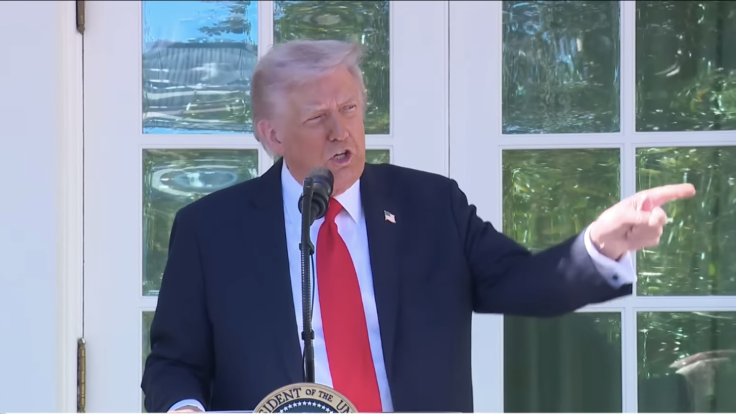Is Donald Trump Paying Himself With Taxpayer Money? Experts Criticise Roberts' Supreme Court Decision

US President Donald Trump has filed administrative claims worth $230 -------million against the Department of Justice (DOJ), alleging government misconduct in two major investigations—the 2016 Russia probe and the FBI's search of his Mar-a-Lago estate for classified documents.
Critics warn the move could see taxpayer money flow directly to a man once at the centre of both controversies.
According to CBS News, Trump filed the claims under the Federal Tort Claims Act (FTCA), accusing federal investigators of overreach.
At a White House press appearance, Trump said the government 'owed him a lot of money' and added that any payment 'would have to go across my desk,' according to AP News.
Legal observers note that this creates a troubling dynamic, as the same department he once led could end up authorising a payout to him.
Supreme Court Ruling Expands Presidential Immunity
The controversy comes in the wake of the Supreme Court's July 1, 2024, decision in Trump v. United States, which significantly expanded legal protections for former presidents.
The 6–3 ruling held that a president enjoys absolute immunity for 'core' constitutional acts and presumptive immunity for other official duties, as explained by the National Constitution Centre.
Chief Justice John Roberts, writing for the majority, declared:
'Under our constitutional structure of separated powers, the nature of presidential power entitles a former President to absolute immunity from criminal prosecution for actions within his conclusive and preclusive constitutional authority... and at least presumptive immunity from prosecution for all his official acts.'
Civil rights advocates warn the ruling effectively shields presidents from accountability.
The American Civil Liberties Union (ACLU) said the decision 'created a law-free zone around the President,' raising fears it could enable abuse of power.
How the Ruling Shapes Trump's Damage Claims
Analysts argue the immunity ruling strengthens Trump's position by narrowing the legal avenues to challenge his compensation claims.
Since the DOJ and the federal Judgment Fund — both taxpayer-financed entities — would handle any payout, watchdogs say the overlap of interests poses a potential conflict of interest.
The ACLU further warned that the decision 'places presidents substantially above the law,' which could embolden future executives to seek government funds or avoid accountability for alleged wrongdoing.
Details of Trump's Two Federal Claims
Under the FTCA, individuals must first file administrative claims with federal agencies before suing. Trump's filings reportedly cover:
- Alleged misconduct by the FBI and special counsel in investigating Russian interference in the 2016 election, according to Reuters.
- Alleged rights violations during the Mar-a-Lago search and the subsequent classified documents case, AP News reported.
If approved, the payout would come from the Judgment Fund, which draws directly from public funds.
A DOJ spokesperson told Reuters that the department's ethics officials would review any evaluation of Trump's claims.
Bipartisan Concern and Democratic Oversight
Both parties have expressed unease. Some Republican lawmakers have called the optics 'terrible,' while Democrats are pushing for oversight hearings into the DOJ's handling of the claims, AP News reported.
Legal scholars at the Brennan Centre for Justice called the immunity ruling 'an affront to democracy,' arguing it undermines essential checks on executive power.
In her dissenting opinion, Justice Sonia Sotomayor warned the decision effectively makes a president 'a king above the law,' according to The Guardian.
A Test of Accountability
The collision between Trump's nine-figure compensation demand and the Supreme Court's expanded immunity has reignited debate over presidential power, transparency, and fairness.
For many Americans, the question now is whether the system still ensures that no leader—past or present—stands above the law.
© Copyright IBTimes 2025. All rights reserved.



















